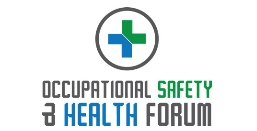Research conducted on behalf of 12 professional membership and regulatory bodies, has revealed that while equality, diversity and inclusion (EDI) initiatives are increasingly commonplace, there is growing scepticism among professionals that these are ‘box-ticking’ exercises.
Beyond Buzzwords cautions that unless change is urgently prioritised, recent progress risks unravelling.
The research incorporates insights from more than 7,000 professionals across accountancy, engineering, health and safety, facilities management, human resources, insurance, law, management, procurement and public relations.
It finds nearly three-quarters of respondents had experienced barriers to career progression (73%) or some form of ‘discriminatory or exclusionary’ behaviour in their workplace since the start of 2019 (72%). Negative experiences were even more pronounced among those with multiple marginalised characteristics.
“For many years, the professions have shown real commitment in taking action on EDI. Yet we need to drive greater change, with organisations pushing forward higher standards,” said lead researcher, Alice Bell.
“The findings highlight the critical role of professional and regulatory bodies as agents of change. The organisations driving this research together represent more than 750,000 UK workers, and they possess the influence, expertise and networks to raise standards and drive progress on EDI through training, guidelines and support for members.”
Concerns emerging from the research include:
- Widespread scepticism that ambitious EDI goals are being translated into meaningful
actions, with a perception that rhetoric and box-ticking exercises bring few tangible
improvements. As a result, support for EDI efforts seems to be waning. - Access and entry routes into many professions that remain challenging for people
from minority backgrounds, with systemic barriers related to affordability of
qualifications, accessibility issues, and lack of role models. This contradicts notions
that professional success is based on merit. - Many professionals feeling excluded from informal networks and opportunities to
develop. More than half (53%) have considered leaving their employer or profession
due to EDI concerns, related to feeling undervalued or having limited scope to
progress.
However, the research shows that tailored solutions can have significant impacts. It reveals a range of initiatives viewed as effective when well-executed: from normalising flexible working and creating accessible learning resources, to targeted development programmes and removing biases in hiring.
To drive change, the report proposes professional and regulatory bodies can raise the bar
for accountable, ethical professions with respect to EDI. It also includes further recommendations, categorised by audience, for organisations involved in this research, policymakers, employers, and individual professionals. Ultimately, achieving systemic change demands multi-stakeholder commitments.
Helen Goulden OBE, Chief Executive of The Young Foundation, said: “Alongside action from professional and regulatory bodies, real progress relies on individuals, employers and policymakers enacting change within their spheres of influence. But by fostering a ‘race to the top’ on standards, professional and regulatory bodies can drive sustained, systems-wide change.”
Ann Francke OBE, Chief Executive of the Chartered Management Institute, said: “The maths has been done countless times; we know inclusion is beneficial for any organisation’s culture and their bottom line. Yet this report highlights how barriers to progress and discrimination against some groups are still highly prevalent. As professional bodies, we are dedicated to leading by example, collaborating effectively, and driving meaningful change, and I’m proud to be joining them to tackle this ‘say-do’ gap. Inclusion in the workplace isn’t just a trend, it’s essential for organisations to thrive in today’s diverse and interconnected world. The sooner we realise we all stand to benefit, the better.”
Download the report here.
Photo by Clay Banks on Unsplash



